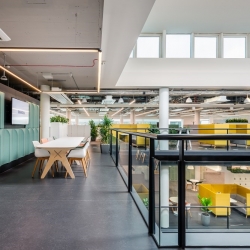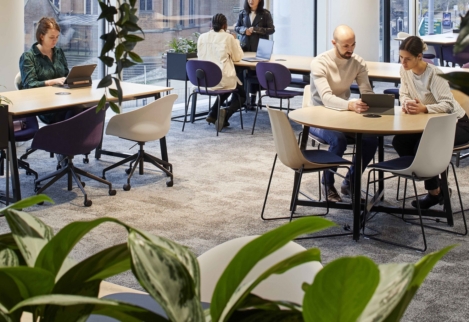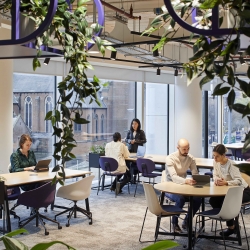To provide the best experiences, we use technologies like cookies to store and/or access device information. Consenting to these technologies will allow us to process data such as browsing behaviour or unique IDs on this site. Not consenting or withdrawing consent, may adversely affect certain features and functions.
The technical storage or access is strictly necessary for the legitimate purpose of enabling the use of a specific service explicitly requested by the subscriber or user, or for the sole purpose of carrying out the transmission of a communication over an electronic communications network.
The technical storage or access is necessary for the legitimate purpose of storing preferences that are not requested by the subscriber or user.
The technical storage or access that is used exclusively for statistical purposes.
The technical storage or access that is used exclusively for anonymous statistical purposes. Without a subpoena, voluntary compliance on the part of your Internet Service Provider, or additional records from a third party, information stored or retrieved for this purpose alone cannot usually be used to identify you.
The technical storage or access is required to create user profiles to send advertising, or to track the user on a website or across several websites for similar marketing purposes.
 European businesses continue to miss out on the full potential of hybrid working, according to a new survey from Ricoh Europe. The research, conducted by Opinium and analysed by CEBR, polled 6,000 workers and 1,500 decision makers across Europe. Business leaders say that workers are, on average, 4 percent more productive in a hybrid culture, equivalent to an additional €113 billion to the European economy compared with pre-pandemic ways of working. More →
European businesses continue to miss out on the full potential of hybrid working, according to a new survey from Ricoh Europe. The research, conducted by Opinium and analysed by CEBR, polled 6,000 workers and 1,500 decision makers across Europe. Business leaders say that workers are, on average, 4 percent more productive in a hybrid culture, equivalent to an additional €113 billion to the European economy compared with pre-pandemic ways of working. More →



































April 24, 2023
Reconnecting older workers with the office: have we retired what matters most?
by Julie Lecoq • Comment, Flexible working, Workplace design